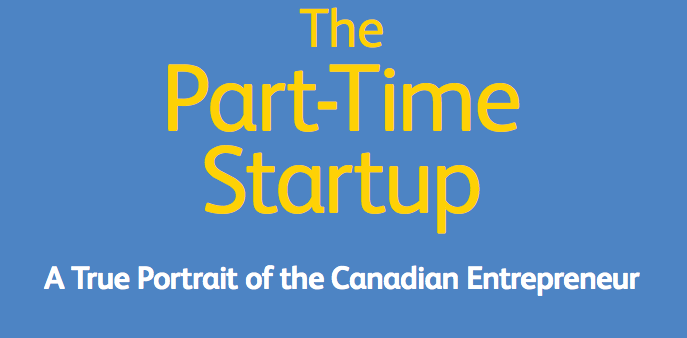A new Intuit study has found that more than half (53 percent) of all new startups in Canada are run by part-time entrepreneurs.
These part-time entrepreneurs are passionate about their businesses and aren’t looking to become millionaires. The study also found that they would be willing to quit their day jobs and go full time if they could make just $30,000 or less per year. That’s significantly lower than the average small business earnings of $789 per week or $41,000 per year, according to Statistics Canada.
“Pause for a moment to think about what this means,” reads the report. “It means that the average startup – defined as a business in operation for three years or less – is not what it is commonly assumed to be. The true portrait of a Canadian startup is the woman down the street who is working
through nights and weekends in pursuit of her great new idea, while spending her days working for someone else.”
(That’s when Intuit comes in and gives the pitch, but we’ll keep it to the need-to-know stats.)
Intuit revealed that solo-run businesses represent a huge chunk of the economy: 1.3 million of the 2.4 million total businesses in Canada. 611,000 of the 2.4 million have 1-4 employees.
Once startups hit the “mature” definition after four years in business, the number of part-time entrepreneurs running the show decreases to 29 percent. And 64 percent of them have at least one employee, up from 46 percent with the startups (in business three years or less).
The majority (59 percent) of new startups start out very lean, with nothing but their own personal savings. In fact, only 10 percent of new startups borrow money from a financial institution (six percent) or receive government funding (four percent). Meanwhile, previous Intuit research showed the average Canadian entrepreneur starting out with $5,000 or less.
And that’s good news for Intuit (they make personal financial software), because only 13 percent of Canadian small businesses are actively working with an accountant, with 52 percent citing cost as the main barrier. “Unfortunately, the lack of access to an accountant or bookkeeper, means that the majority of startups resort to outdated methods to track their business finances, such as spreadsheets or pen and paper.”


